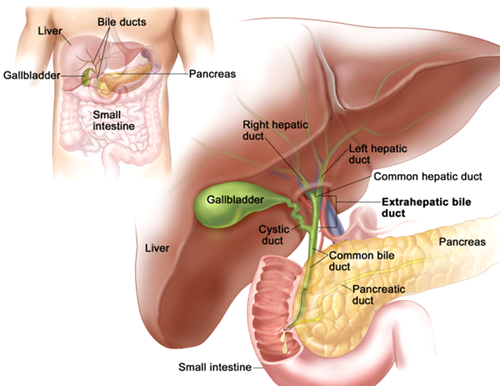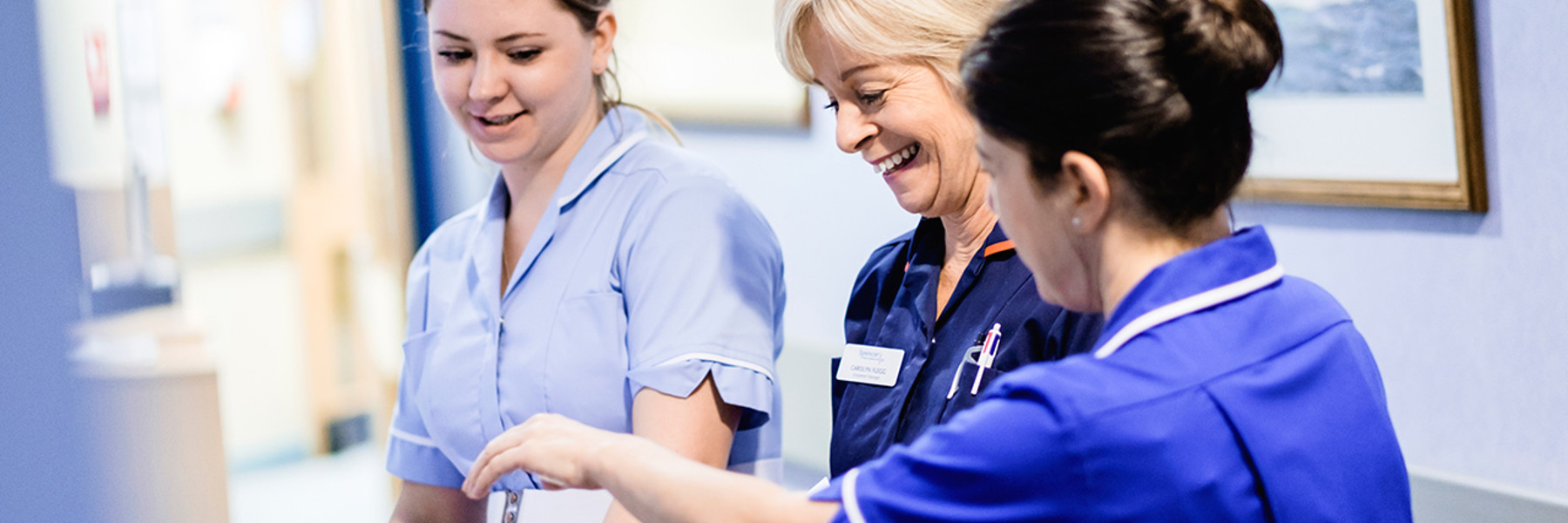ERCP - Endoscopic Retrograde Cholangio Pancreatography
What is an ERCP?
It is a test that allows the endoscopist to diagnose and treat problems with the tubes (ducts) draining the gallbladder, pancreas, and liver (the drainage routes of the liver are known as bile ducts).

To do this test an endoscope (a thin flexible tube approximately the size of an index finger) is passed through your mouth, through the stomach and into the duodenum (first part of the small intestine). Once in the duodenum a catheter (a thin plastic tube) is passed through the endoscope and into the opening of the pancreatic duct and bile ducts.
X-ray dye is gently injected and x-ray pictures are taken. These problems would normally have been picked up by either an ultrasound, CT scan, MRCP, or MRI scan.
Preparation for the examination
- The day before the ERCP you will need to have a blood test and medical assessment. These blood tests are dependent on the requirements of your consultant.
- You will be asked not to eat or drink for several hours before the test. Your Pre assessment Nurse will advise you when to begin this period of nil by mouth.
- If you are a diabetic or haemophiliac, please phone Spencer Private Hospitals for specific advice.
- If you might be pregnant, please inform us as soon as possible.
- If you are taking warfarin, clopidogrel, or other blood thinning medications please inform us as soon as possible.
- If you have a pacemaker, ICD or other implant device, please inform us at least one week before the test.
- Continue to take your medications with a sip of water. Please bring a list of them with you to the unit.
- If you have any queries about your medication, please ring Spencer Private Hospitals. It is especially important to remember to bring any asthma inhalers or angina sprays with you.
- Please remove your nail polish and all types of false nails before attending for your procedure.
- Please bring with you your dressing gown, slippers, and something to do during your stay.
- Do not bring any valuables to the unit.
FAQs
- Your throat may be sprayed with a local anaesthetic that has a numbing affect; this has a slightly bitter taste.
- You will be asked to lie on your left side with your left arm behind your back as you may be turned onto your stomach during the test.
- Then while you are lying on your left side, a small mouth-guard will be placed in your mouth in order to protect your teeth.
- A sedative and painkiller are given before the examination. This will help you feel more relaxed and sleepy. (This needle will be left lightly strapped to your hand/arm until you are recovered from the procedure for any other drugs that may be needed).
- A small device for recording the pulse and breathing will be attached to your finger and you will be given oxygen
- A cuff will be placed on your arm to monitor your blood pressure if you have sedation (please inform the nurse if there is a reason why a certain arm cannot be used).
- Three small dots will be placed on your back to monitor your heart during the procedure.
- A sticky pad may be placed on your thigh if diathermy is needed during the procedure
- Once you are sleepy the endoscopist will begin the test.
- The stomach and duodenum will be gently inflated with air to expand it so the lining can be seen more clearly. The air is sucked out at the end of the test.
- A muscle relaxant is given to stop your bowel moving.
- The nurse may need to clear saliva from your mouth using a small suction tube.
- If a narrowing is found in the bile duct, a small plastic tube (stent) is inserted to allow the bile to drain. This may stay in place permanently or be removed at a later date.
- If the endoscopist finds a gallstone(s) in the bile duct during the ERCP, the opening of the bile duct will be enlarged with a cut using an electrical current (diathermy). This will allow the stones to be removed. If the stone is very large, or if there are a lot of stones, it may not be possible to remove the stone(s) in one go. In this case a stent is left in the bile duct and a further appointment will be arranged.
- A biopsy (a small sample of the lining of your bowel) may be taken during the examination to be sent to the laboratory for more tests. You cannot feel this. (A video recording and/or photographs may be taken for your records). Afterwards the duodenoscope is removed easily.
- In about one in 20 cases it will not be possible to treat your problem at ERCP. For example, the opening of the bile duct may be too narrow to allow the catheter to be inserted. If this occurs, then further treatment options will be discussed with you after the test.
ERCP is generally a well-tolerated procedure. There is a small risk of the following:
- Damage to crowned teeth or dental bridgework.
- Inflammation of the pancreas: this is called pancreatitis. It can be painful, causing abdominal pain and sickness, and usually requires some days in hospital for intravenous fluids and painkillers. On very rare occasions it may be very severe. The risk of pancreatitis occurring is 1 to 2%, (which is one in 50 to 100 patients).
- A reaction to the sedative. The sedative can affect your breathing making it slower and shallower.
- Bleeding: if a cut is made into the bile duct to remove a gallstone, there is a risk of bleeding. This risk is approximately 1% (which is one in a 100 patients). Bleeding can often be treated immediately through the endoscope and is rarely a major complication. If severe it may require a blood transfusion or surgery.
- Perforation, which is a small tear in the wall of the bowel. This is rare. This would require a short stay in hospital and treatment with antibiotics, or very occasionally may require surgical repair.
- You may have a sore throat after the test, but this normally clears up in a few days.
Please talk to your endoscopist before your examination if you have any worries about these risks.
- Please report to the reception of the Spencer Private Hospitals.
- You be requested to sit in the reception area until the ward is ready for you.
- A nurse will check your details, blood pressure, and pulse. If you are taking any medication or are allergic to anything (medications, plasters, latex) please tell the nurse.
- You will be asked to remove any jewellery, spectacles, contact lenses, tongue studs, and false teeth before the examination.
- Please inform the nurse if you have a pacemaker, replacement joints, pins, or plates.
- A small needle will be inserted into a vein. If we are unable to use a particular arm for any reason, please inform the staff immediately. (This needle will be left lightly strapped to your hand/arm until you are recovered from the procedure for any other drugs that may be needed)
- You will usually receive antibiotics and a Voltarol suppository before the procedure to help prevent infection.
- The endoscopist performing the test will explain the procedure and ask you to sign a consent form. This confirms that you understand the examination and agree to go ahead with it.
- Please do not hesitate to ask any questions you may have.
- You will need to change into a hospital gown.
- A nurse will stay with you throughout the examination.
- You will return to the ward to rest.
- You may still have a little wind, but this will pass naturally.
- Normally patients need to stay in hospital for a day or so after the test, but occasionally you may be allowed home the same day.
- You may also be kept nil by mouth for a period of up to 24 hours. However, if the procedure is straightforward you can usually eat and drink once you are fully awake.
- You will be informed of the result of the examination. If biopsies have been taken, the results take about a week to come back.
- A letter will be sent to your GP.
If it has been decided you can go home on the same day as your procedure
- You must have a friend or relative with transport to collect you from the unit and stay with you at home for 24 hours until you are fully recovered;
- You are advised not to drive, drink alcohol, operate machinery (including an electric kettle), or sign important documents for 24 hours following the sedative;
- You may have a mild sore throat, but this will pass and is nothing to worry about;
- You may feel a little bloated from some air left in the stomach, again this will pass;
- You can eat and drink as normal.
